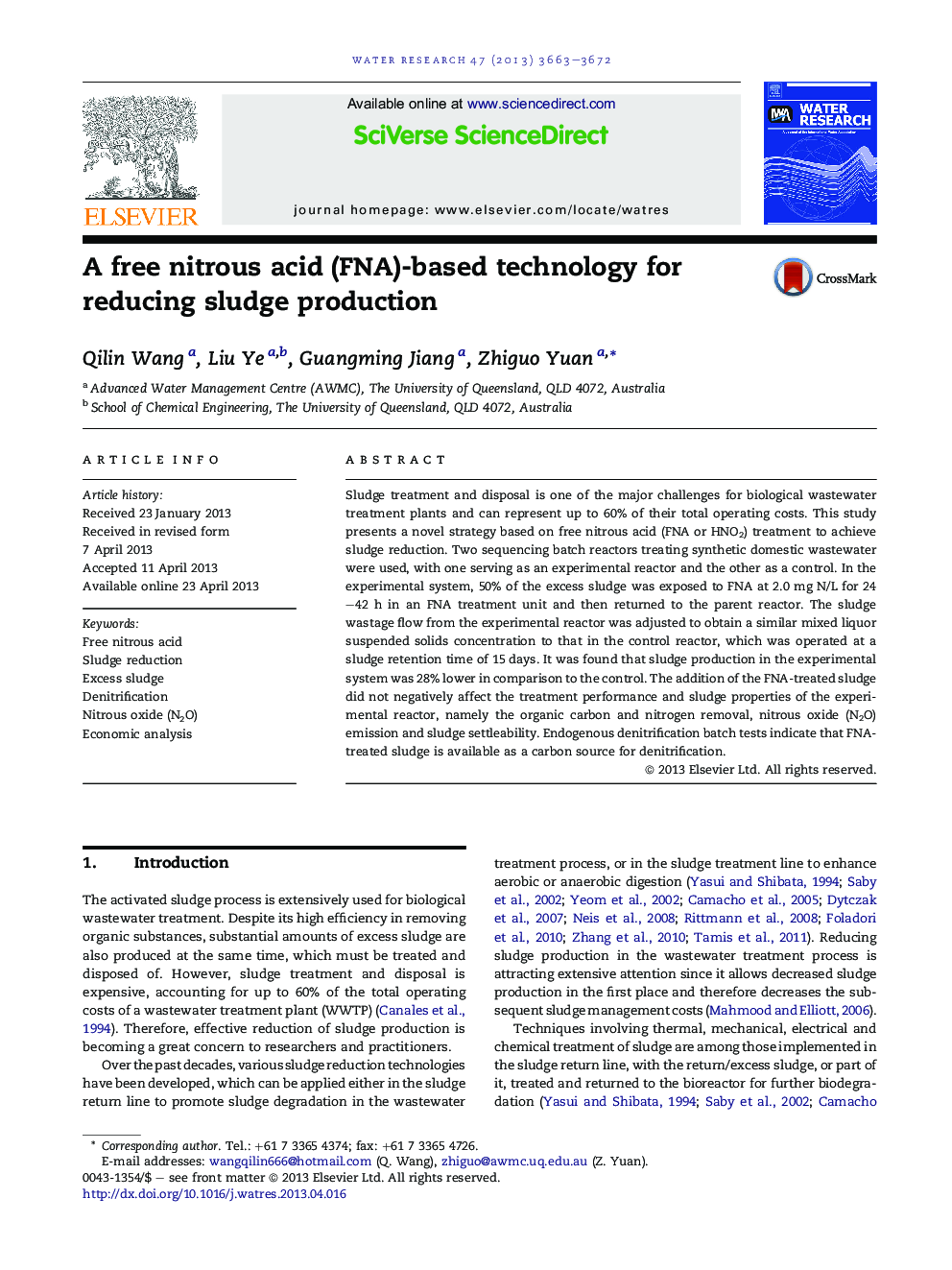| Article ID | Journal | Published Year | Pages | File Type |
|---|---|---|---|---|
| 4482177 | Water Research | 2013 | 10 Pages |
•FNA treatment of excess sludge is effective in reducing excess sludge production.•FNA-based sludge reduction does not have a negative effect on the reactor performance and sludge properties.•FNA-treated sludge can be used as a carbon source for denitrification.•The FNA-based technology is a potentially economically feasible sludge reduction strategy.
Sludge treatment and disposal is one of the major challenges for biological wastewater treatment plants and can represent up to 60% of their total operating costs. This study presents a novel strategy based on free nitrous acid (FNA or HNO2) treatment to achieve sludge reduction. Two sequencing batch reactors treating synthetic domestic wastewater were used, with one serving as an experimental reactor and the other as a control. In the experimental system, 50% of the excess sludge was exposed to FNA at 2.0 mg N/L for 24–42 h in an FNA treatment unit and then returned to the parent reactor. The sludge wastage flow from the experimental reactor was adjusted to obtain a similar mixed liquor suspended solids concentration to that in the control reactor, which was operated at a sludge retention time of 15 days. It was found that sludge production in the experimental system was 28% lower in comparison to the control. The addition of the FNA-treated sludge did not negatively affect the treatment performance and sludge properties of the experimental reactor, namely the organic carbon and nitrogen removal, nitrous oxide (N2O) emission and sludge settleability. Endogenous denitrification batch tests indicate that FNA-treated sludge is available as a carbon source for denitrification.
Graphical abstractFigure optionsDownload full-size imageDownload high-quality image (218 K)Download as PowerPoint slide
